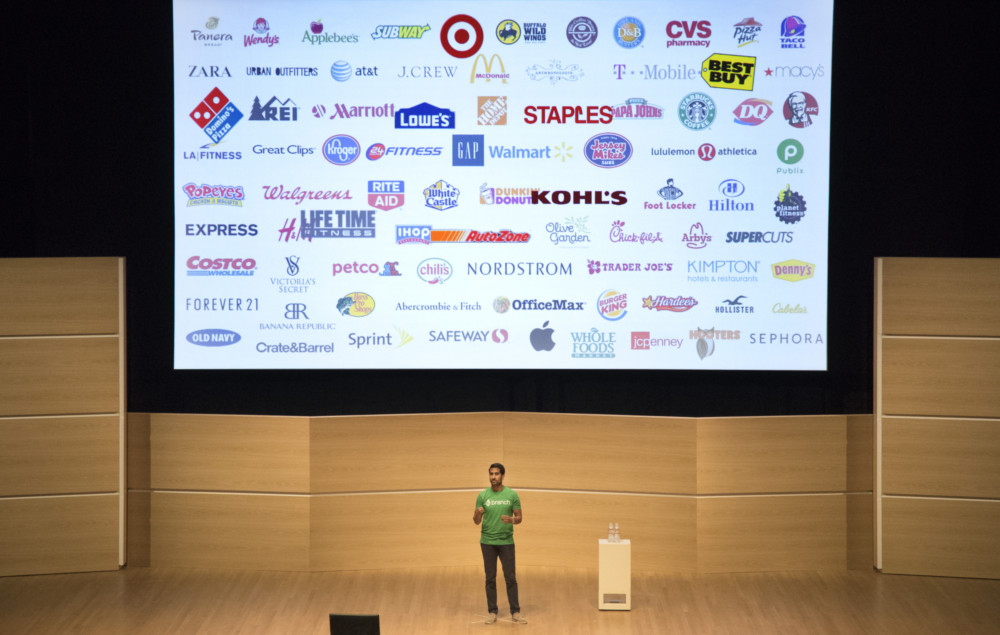By Kavita Kumar
Star Tribune (Minneapolis)
WWR Article Summary (tl;dr) Target’s First Tech incubator just wrapped up and by all accounts it was a success! Target executives who spearheaded the program emphasized all along that the aim of the program was not just for those start-ups to launch their products or services at Target. Rather, the purpose was to help them mature and grow while also persuading some of them to stay in town to boost the local tech scene.
Star Tribune (Minneapolis)
Target Corp.’s first experiment in sponsoring a tech incubator has already produced tangible results, including at least six partnerships with the retailer among the 11 start-ups that took part.
Two of them — Hong-Kong based Inspectorio, which aims to improve third-party inspections of retailers’ supply chains, and Los Angeles-based Branch Messenger, a mobile app that enables store workers to more easily swap shifts — are moving their small teams and headquarters to Minneapolis as they expand current pilot programs with Target.
On top of that, customers will see products or services from some of the start-ups sold through Target. For example, deals were struck with Revolar to sell its wearable safety devices, ItsByU to promote its DIY flower kits on Target’s bridal registry site and MakerBloks to distribute its STEM-focused toys.
Those were some of the highlights revealed Tuesday at Demo Day, the pinnacle of the 3-month-long boot camp in which the early-stage companies were given access to hordes of mentors to help finesse their business plans.
Standing on the stage at Orchestra Hall, the founders of the start-ups, many of them clad in jeans, delivered their final 5-minute pitches before an audience that included investors, Target leaders, Twin Cities entrepreneurs and friends and family.
Target executives who spearheaded the program emphasized all along that the aim of the program was not just for those start-ups to launch their products or services at Target. Rather, the purpose was to help them mature and grow while also persuading some of them to stay in town to boost the local tech scene.
In the process, Target — which has been notoriously slow when it comes to making decisions — also hoped to learn from the start-ups how to streamline its own processes and to innovate more quickly.
“We didn’t know how the summer would go,” said Casey Carl, Target’s chief innovation officer. “We were pleasantly surprised by the outcome.”
There is a possibility that Target could invest in or acquire some of the start-ups — something that the company hasn’t done much of in the past. Target has been involved in such discussions in recent days but no announcements were made on Tuesday.
“I think it’s a possibility for sure,” Carl said. “But nothing to share right now.”
The 14-week Techstars program, which Target will host for at least two more summers, also proved to be a boon for other local companies. Richfield-based Best Buy has already embedded some of the search technology of AddStructure into its mobile app and has plans to carry Makerbloks’ toys and Revolar’s devices on its website this fall.
More than 550 start-ups from 45 countries applied to be part of Techstars’ first retail-focused accelerator housed at Target. The field was narrowed down to 10 companies, plus one in-house Target team that also went through the boot camp.
Founded in Boulder, Colo., Techstars was started in 2006 by investors looking to more closely advise and mold start-ups. It has now run dozens of accelerators around the world and built an impressive track record. Whereas about nine in 10 start-ups end up failing, the companies in Techstars’ programs have a success rate nearly the reverse of that. Some of its previous corporate sponsors have included Sprint, Disney, Nike and Ford.
Participants get an initial investment from Techstars of $20,000 and the possibility of an additional $100,000.
Beyond Inspectorio and Branch Messenger, some of the other start-ups in the Target program are contemplating some sort of a permanent presence in the Twin Cities by opening a satellite office or having one member of their team stay in Minneapolis.
For Inspectorio, two of three founders, who are brothers, will live here, and they will hire for a few other positions locally. The company’s 11-person engineering team will stay in Vietnam.
Carlos Moncayo Castillo, the chief executive, said in an interview that the company hasn’t yet decided on a space.
“We’re looking at different options, but we’re not in a hurry because Target invited us to be here for the rest of the year,” he said, nodding to the fact that Target has invited all of the participants to continue working out of its headquarters through December.
The brothers liked Minneapolis’ central location between the two coasts, especially as they decided to make the U.S. their target market during the course of the program, he said.
Inspectorio has already started some tests with Target, doing inspections of some footwear and apparel at factories in China. It will expand those tests next month.
Gavin Lee, chief operating officer of North Loop Capital Management, mentored some of the start-ups in the program. He has founded two start-ups himself and is an alumni of Techstars. He admits that he wasn’t sure at first whether Target would be able to keep up with the pace of the start-ups, especially given his own experience with a young company trying to get a foothold inside a giant company.
“I was skeptical about how all of these start-ups would work with a huge mother ship, but [Target] did it right,” he said.
“I was impressed with how Target adapted to these quick-moving start-ups, not just the innovation team but also how all of these C-level executives were really involved.”
Target CEO Brian Cornell and other senior executives personally mentored many of the start-ups, meeting with them every week.
Applications for the second class of Target’s Techstars will open in January.














































































































































































































































































































































































